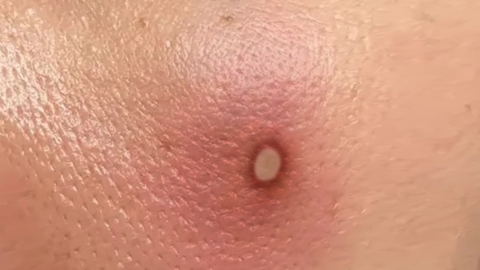What should I do if I have a boil on my buttocks?
Generally, the occurrence of boils on the buttocks may be caused by factors such as poor local hygiene, prolonged sitting causing follicle compression, folliculitis of the buttocks, infected sebaceous cysts, or diabetes. It is recommended to seek timely medical consultation to identify the underlying cause, followed by improvement through general treatments and medication under a doctor's guidance. A detailed explanation is as follows:

1. Poor Local Hygiene: Incomplete cleansing of the buttocks can lead to sweat and dirt blocking the hair follicles, promoting bacterial growth and resulting in boils, which manifest as redness and pain. It is advised to wash the buttocks daily with warm water, keep the area dry, wear loose and breathable cotton underwear, and change underwear frequently to reduce bacterial growth.
2. Follicle Compression Due to Prolonged Sitting: Extended sitting can impair blood circulation in the buttocks and compress the hair follicles, making them prone to blockage and subsequent boils. It is recommended to stand and move for 5–10 minutes every hour of sitting, avoid hard seats, and use breathable cushions to relieve pressure and promote local blood circulation.
3. Buttock Folliculitis: Infection of the hair follicles by bacteria such as Staphylococcus aureus can cause inflammation, which may develop into boils if not treated promptly, often accompanied by pustules at the follicular openings. Patients should apply topical medications such as mupirocin ointment, fusidic acid cream, or compound polymyxin B ointment as directed by a physician, avoid squeezing the boils, and prevent the infection from spreading.
4. Infected Sebaceous Cyst: Blockage of the sebaceous gland ducts on the buttocks can form a cyst, which may become secondarily infected and lead to boils, with significant redness and swelling. During the early stages of infection, anti-inflammatory medications such as cefaclor capsules, amoxicillin-clavulanate potassium tablets, or roxithromycin capsules may be used as directed by a physician to control the inflammation.
5. Diabetes: Poor blood sugar control weakens the skin's resistance, making it easier for bacterial growth and boil formation, with slow healing and frequent recurrence. Patients should manage their blood sugar levels using medications such as insulin injection, gliclazide modified-release tablets, or metformin-glibenclamide tablets as prescribed, maintaining stable blood sugar to promote healing.
In daily life, avoid spicy and irritating foods, consume more fresh vegetables and fruits, and maintain regular bowel movements. Avoid pressing on the affected area while sleeping and reduce friction and irritation. Comprehensive care can help alleviate boils and maintain the health of the buttock skin.




